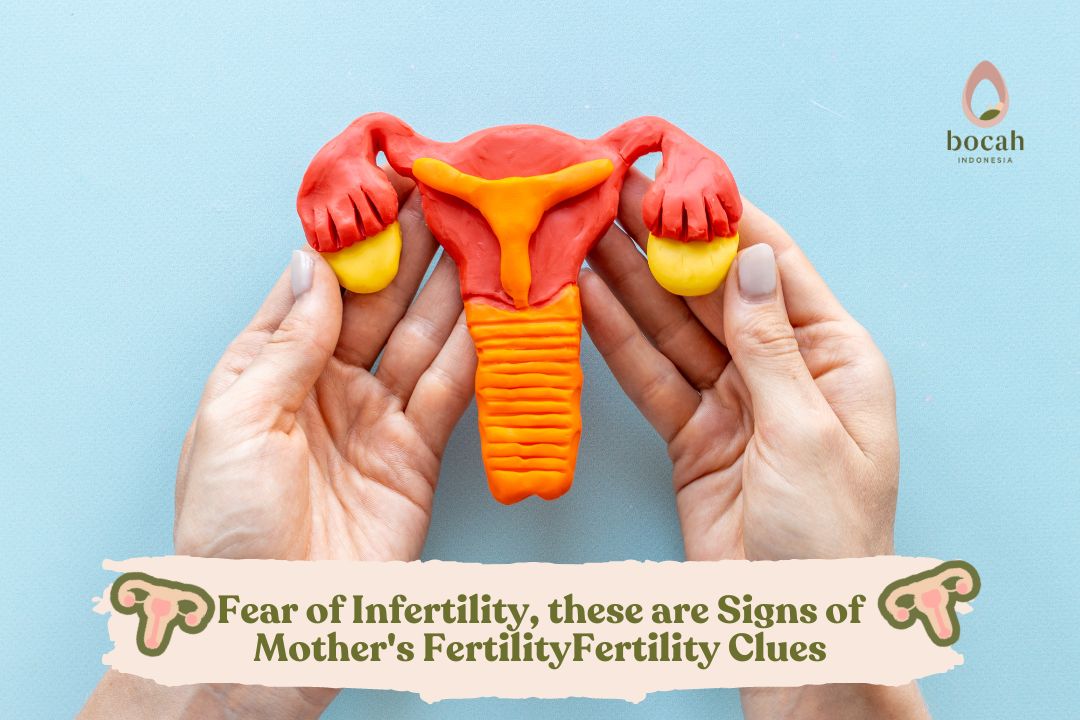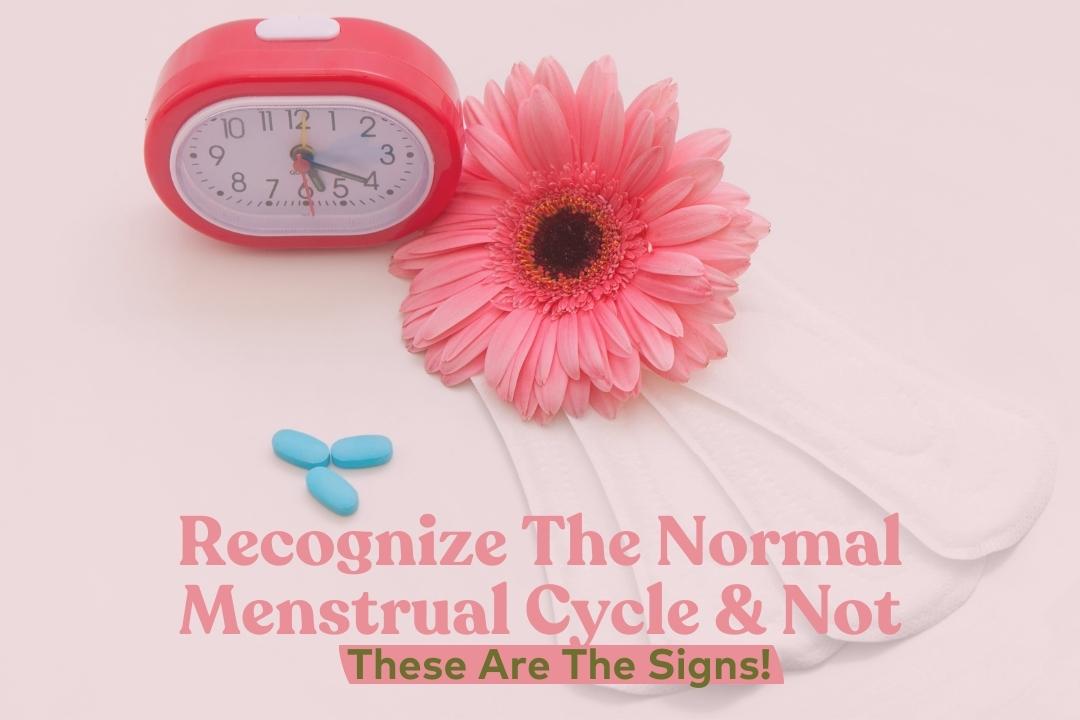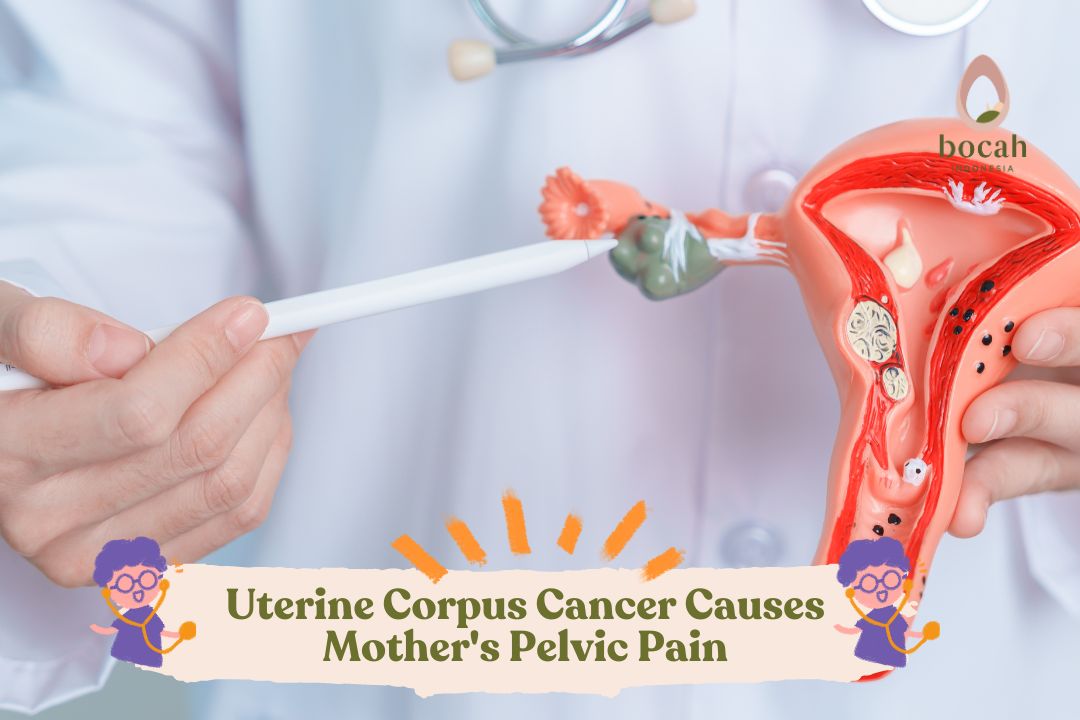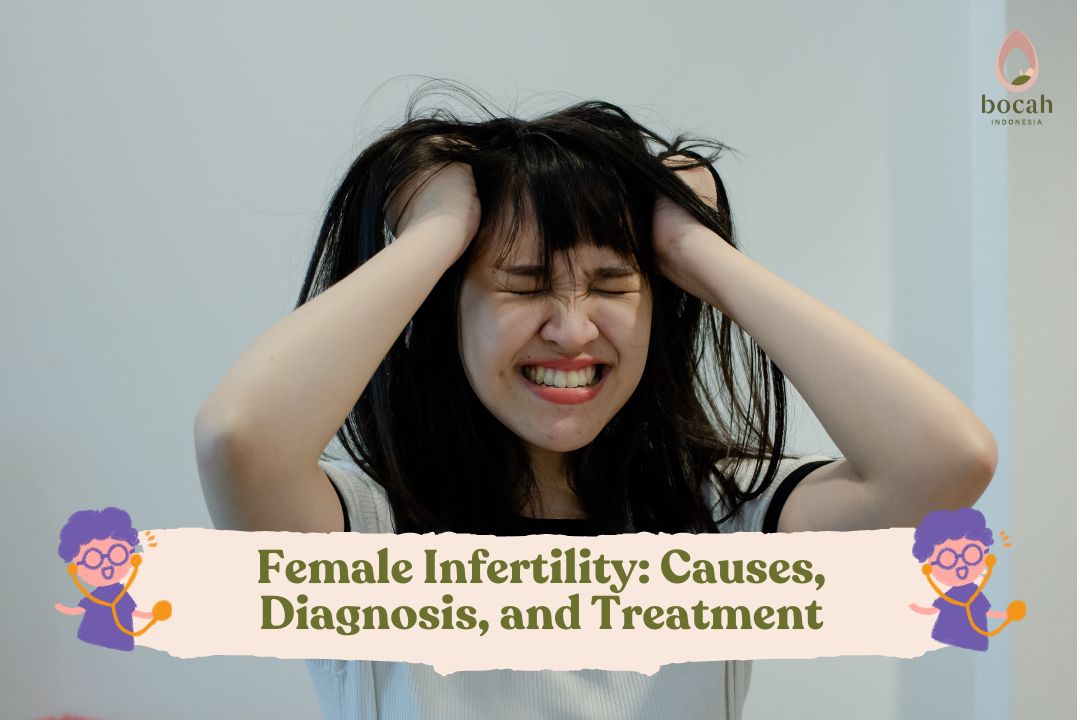Fear of Infertility, these are Signs of Mother’s FertilityFertility Clues

A mother’s fertility level affects her hopes of having a child. Find out how to assess a woman’s fertility here.
Understanding a woman’s fertility level early on can be the key to planning a happy family future. This is because, in achieving the dream of having a little one, mother’s fertility is a factor that cannot be ignored.
There are several ways that mothers can use to determine their fertility level, one of which is by ensuring that their menstrual cycle is regular every month. Learn more about how to check your fertility.
How to Determine a Woman’s Fertility Level
There are various signs that can indicate fertility in both men and women. For fathers, some signs of fertility include a healthy sperm count, high-quality sperm that can swim quickly and easily, and a good hormonal balance.
Meanwhile, for mothers, good fertility indicators include regular ovulation, the presence of cervical mucus, and a regular menstrual cycle. Here is a more detailed explanation of how to determine a woman’s fertility: women’s fertility.
Tanya Mincah tentang Promil?
-
Regular Menstrual Cycle
A regular menstrual cycle (every 21-35 days) indicates that a mother’s body is producing the necessary hormones, which are essential for healthy fertility. It is also important to keep track of the menstrual cycle using a calendar, period tracking apps, or digital records.
Irregular menstrual cycles can indicate conditions like endometriosis or polycystic ovary syndrome (PCOS), which can cause fertility problems and difficulty getting pregnant.
-
Normal Blood Flow During Menstruation
Normal blood flow during menstruation refers to the amount of blood discharged during the menstrual cycle. This condition can provide clues about reproductive health and women’s fertility.
However, slight fluctuations are common. As long as it remains consistent and timely, there is no need to worry.
-
Breast Pain
After ovulation, the body increases the levels of reproductive hormones such as progesterone, which can make a mother’s breasts feel sore and heavy. So, breast pain can be a sign that ovulation is occurring at that time.
It’s important to note that not all women experience breast pain before or after menstruation, and it does not necessarily indicate infertility.
-
No History of Sexually Transmitted Infections
Sexually transmitted diseases, such as chlamydia and gonorrhea, and chronic conditions often lead to pelvic inflammatory disease and infections of the female reproductive organs (pelvis, ovaries, fallopian tubes, cervix, and uterus), causing difficulty in getting pregnant.
However, if a mother has never experienced any of the mentioned pelvic infections, it can be a sign of good fertility, and she is more likely to conceive quickly.
-
Clean Gynecological Records
Having clean gynecological records is one of the most important signs of good fertility and can also mean that a mother can easily get pregnant. pregnant.
Some women have a history of specific fertility problems, including ovulation disorders, PCOS, hormonal problems, and damaged or blocked fallopian tubes, and these women may experience lower fertility levels.
-
Healthy Lifestyle
Studies have shown that unhealthy eating habits, smoking, excessive alcohol consumption, obesity, excessive caffeine intake, high stress levels, insufficient sleep, and unhealthy habits related to fertility health
Causes of Fertility Problems in Women
The main causes of female infertility are anovulation, which means the ovaries do not release eggs. The condition known as polycystic ovary syndrome (PCOS) is the primary cause.
Other issues that can affect fertility include:
-
Failure in the ovulation process, where the ovaries do not release eggs regularly, can be a major cause of fertility problems.
-
PCOS is a condition in which women’s reproductive hormones are imbalanced, leading to ovulation disturbances, abnormal follicle growth, and ovarian cysts.
-
Issues with the fallopian tubes, which carry eggs from the ovaries to the uterus. Sometimes, a woman’s fallopian tubes can be blocked by scar tissue due to infections or a condition called endometriosis.
-
Smoking can cause fertility problems in women.
-
Being overweight or underweight can also play a role in fertility.
-
Prolonged stress and high levels of anxiety can affect hormonal systems and ovulation.
-
In women, fertility declines with age, especially after the age of 35. Pregnancy after the age of 45 is rare.
-
Some autoimmune diseases, such as lupus or antiphospholipid syndrome, can affect fertility by damaging ovarian tissue or interfering with embryo implantation.
To determine the factors causing fertility problems that a woman may experience, it is recommended to undergo a medical examination.
If, after one year of marriage, a woman has not experienced pregnancy, it is essential to consult a doctor or obstetrician specialist immediately for a comprehensive evaluation, determining the cause, and starting appropriate treatment. Plan a healthy family with Bocah Indonesia.
This article has been medically reviewed by Dr. Chitra Fatimah.
Source:
- Carson, S.A. & Kallen, A.N. (2021). Diagnosis and Management of Infertility: A Review. JAMA, 326(1), pp. 65–76. https://pubmed.ncbi.nlm.nih.gov/34228062/
- American Pregnancy Association. What is Ovulation?
- Mayo Clinic (2021). Diseases & Conditions. Infertility.
- Seladi-Schulman, J. Healthline (2019). Everything You Need to Know About Infertility.
- Hoffman, M. WebMD (2021). Fertility Tests for Women.
- WebMD (2020). What Tests Check for Blocked Fallopian Tubes?






